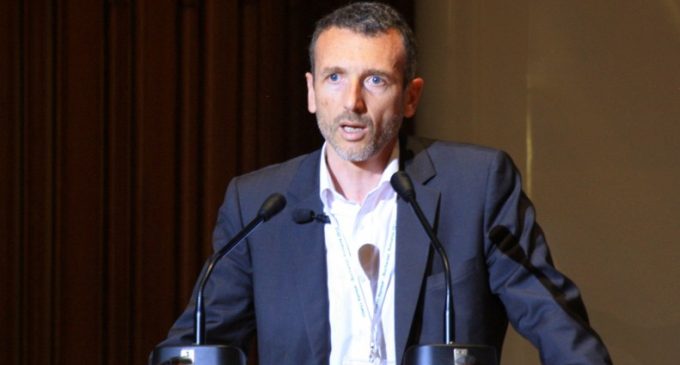Danone commits to zero carbon emissions in long-term plan

Danone has committed to a new climate policy targeting zero net carbon emissions within its direct and shared scope of responsibility, which will enable the company to strengthen the resilience of its global food chain and pave the way for sustainable business growth.
To achieve this target, Danone will co-create solutions with its ecosystem, including farming communities, suppliers, customers and consumers. The new climate policy concerns both areas under Danone’s direct responsibility – manufacturing, packaging, logistics, end-of-life – and those where the company shares responsibility, especially in agriculture, which represent 65% of total emissions. Danone will thus be tackling the full scope of its carbon footprint, which amounts to 18.8m tons.
The new climate policy aims to achieve zero net carbon emissions in the long term, starting with a 50% reduction in carbon intensity between 2015 and 2030. The company has also committed to starting to reduce emissions in absolute terms before 2025.
To achieve these targets, Danone’s climate strategy has defined five priorities: to reduce the company’s full scope carbon emissions; develop “carbon positive” initiatives to capture carbon in natural ecosystems such as forests, mangroves and soil; fully eliminate deforestation impacts from Danone’s supply chain by 2020; build resilience into its food and water cycles; and offer preferred and healthier diet options in a resource-efficient way using sustainably sourced ingredients.
Danone chief executive officer Emmanuel Faber said: “Our activities are directly linked to nature and agriculture. The risks of global warming are high and they affect both the natural cycles on which we depend, and people’s living conditions, starting with family farmers and livestock breeders. Today we have decided to go much further and we are adopting another decisive step for a resilient growth model.”
Pascal De Petrini, executive vice-president strategic resource cycles, added: “To help find solutions to this game-changing challenge, we must take global view of the food chain. By viewing carbon as a cycle, we can not only reduce our emissions, but also offer solutions to promote carbon sequestration in soils, forests and mangroves through agricultural practices and ecosystem restoration activities that reduce greenhouse gas emissions. This approach demands continuous improvement to spark innovation and spread best practices. With hands-on pragmatism and small-scale experimentation, we can scale up tools to solve the complex climate change challenges within the food chain.”


































